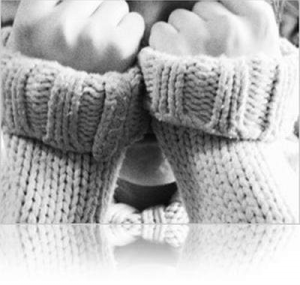Phobias
 Overview
Overview
This condition is characterized by overwhelming fears of specific objects or situations. The people who experience phobias have intense discomfort, sometimes to the point of panic, when they are faced with the objects of their fear. The typical way of dealing with this problem is to completely avoid the stimuli, which in turn can create varying degrees of hardship.
Some of the symptoms of stress include:
- Heart palpitations
- Chest pain
- Rapid heartbeat
- Shortness of breath
- Dizziness
- Nausea
- Seating
- Chills
- Choking sensation
Causes
This condition usually begins when the brain associates some situation or object with a frightening or other traumatic event. Sometimes the connection is clear, such as someone who almost drowns as a child developing a fear of water. Other times the relationship is less clear, such as a fear of butterflies.
Parental conditioning can also contribute to phobias. A phobia may also be formed through modeling. If a child watches a phobic parent, they pick up on the phobia and make it their own. Or the parent may go overboard telling a child a certain place is "dangerous," and as a result the child becomes overly sensitive and frightened of the world at large.
Nutritional imbalances have also been known to play a part. Sugar, caffeine and alcohol can cause physiological imbalances that increase stress and cause hypoglycemia, hypothyroidism, and mineral deficiencies.
Curtains foods or food additives can cause allergic reactions that increase the likelihood of developing the disorder. When these stresses are not addressed and corrected, they can build up in the system until an incident occurs to trigger a full-fledged panic attack.
Types
There are three types of phobias. They are:
- Simple phobias - These affect about 10 percent of all men and women and in equal proportion. Some typical simple phobias include needles, elevators, water, heights, animals and air travel.
- Social phobias - This involves the fear of being embarrassed or humiliated in public. Number one on this list is a fear of speaking in public. Surveys show public speaking is more frightening to some people than the thought of dying. Other people experience phobias of restaurants or other public places, dating, using public toilets, or meeting new people. With social phobias, the patient feels self-conscious about being judged to the point of not being able to function around others.
- Agoraphobia - The literal meaning of this is "fear of the marketplace." People with this condition avoid public places for fear of having a panic attack in public. The person thus avoids going to places where they feel they might be embarrassed' This panic is tantamount to a severe stress reaction.
Prevention
Avoiding excessive use of sugar, caffeine, and nicotine helps to lower imbalances in the brain. Many people use these substances in order to deal with their anxiety, not knowing they may actually be causing it.
Diagnosis
While it may seem obvious when someone is suffering from anxiety, it is always a good idea to seek help from a medical practitioner to ensure no other underlying medical conditions are causing the problem.
Treatment
Traditional treatment involves imagery and real-life desensitization. Using the imagery technique, the person is placed in a state of deep relaxation. He or she is then asked to visualize a peaceful scene, such as a mountaintop or a sandy beach. Progression relaxation techniques may be used that allow the person to begin visualizing more threatening scenes for them, all the while realizing that nothing is happening to them. This path is not always an immediate success: many people make progress and then fall back a few steps before moving forward again.
This treatment is very time consuming. It may not be right for people who do not have the time or the patience to commit to this type of long-term project.
Medications which help to reduce anxiety may also be explored. Counseling can help to build self-0esteem and improve communication skills, which help with social phobias. Because phobias "protect" the person in some form, removing the protection leaves a need for a support of some kind.
Research has also shown certain nutrients have a positive effect on the chemistry in the brain. Some nutrients that work to reduce anxiety are the B-complex vitamins, calcium, magnesium, and GABA. Also of value in this category may be the amino acid L-tryptophane, the omega-3 fatty acids, and inositol.
Herbs that calm the nerves are also very helpful. These can include the following:
- Lady's slipper
- Hops
- Skullcap
- Chamomile
- Passionflower
- Celery
Hops also calm an upset stomach and it said if hops are placed under the person's pillow they have an easier time falling asleep.
Kava kava can be used sparingly, but some cautions should be taken. When taken in large amounts it can build up in the body causing an itchy, scaly skin condition that goes away when the supplements are stopped.
References
- Bratman, S. (1998). The Alternative Medicine Ratings Guide: an expert panel rates the best treatments for over 80 conditions. New York: Crown Publishing Group (1998)
- Brown, L. (1999). Alternative Medicine. London : Teach Yourself
- Carmen, R. (2009). The consumer handbook on hearing loss and hearing aids : a bridge to healing. Sedona, Ariz. : Auricle Ink Publishers
- Deepak Chopra, M.D. (2002). Alternative Medicine: The Definitive Guide. Puyallup, Wash. : Future Medicine Pub.
- Duke, J. (2003). The Green Pharmacy: Herbal remedies for common diseases and conditions from the world's foremost authority on healing herbs. London : Rodale
- Servan-Schreiber, D.(2006). The Encyclopedia of New Medicine: Conventional & Alternative Medicine For All Ages. London : Rodale
Posted in Phobias
Ask a Question Or Join a Discussion


